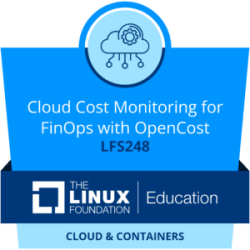Images
In the first module (LFC202-JP), you will learn the basic components of open source and open standards. You will also learn about the differences between open source and closed source software, the reasons for the use of each, and how the combination of standards and open source provides increased value to an organization. The second module (LFC203-JP) discusses the various open source business models and how to develop practical strategies and policies for your organization’s chosen model. It also explains the value and importance of an Open Source Program Office (OSPO) as well as how the OSPO helps provide assistance in defining ROI and other open source metrics. In the third module (LFC204-JP), you will learn how to build an effective OSPO and articulate the different types of roles and responsibilities needed to run it successfully. Module 4 (LFC205-JP) talks about the role of continuous integration and testing in a healthy open source project, and how you can apply open source development principles to internal projects within your organization to take best advantage of the value these principles bring. In the fifth module (LFC206-JP) you will learn about the importance of effective open source license compliance and how to build programs and processes to ensure safe and effective consumption of open source in the enterprise. You will also get familiar with the most common open source license types, and their major characteristics, as well as how to choose the most appropriate license for a given situation. Module 6 (LFC207-JP) discusses how to work most effectively with upstream open source projects and how to build sound contribution strategies in organizations to get the maximum benefit from working with project communities. It also describes multiple common upstream project governance models, and explains how these governance practices affect an organization’s ability to make effective contributions. Finally, the last module (LFC208-JP) discusses the rationale and value for creating new open source projects as well as the required legal, business and development processes needed to launch new projects.
This course series is designed to help executives, managers, and software developers understand and articulate the basic concepts for building effective open source practices within their organization. It is also helpful for a leadership audience responsible for setting up effective program management of open source in their organization. Before enrolling, students should have a basic understanding of software development and business concepts.
Similar resources
The key to a successful open technology project is to ensure a neutral playing field for all developers, technologists, and companies to collectively contribute to project evolution and growth. The Linux Foundation was built on the idea of the democratization of code and scaling adoption, for all projects equally. Expert legal and governance support programs ensure everyone is on the same playing field.


IT Specification Basics for New Developers (LFD141)

Security for Software Development Managers (LFD125)

Kubernetes入門 (LFS158-JP)

Cloud Cost Monitoring for FinOps with OpenCost (LFS248)

Conversational AI: Ensuring Compliance and Mitigating Risks (LFS120)










